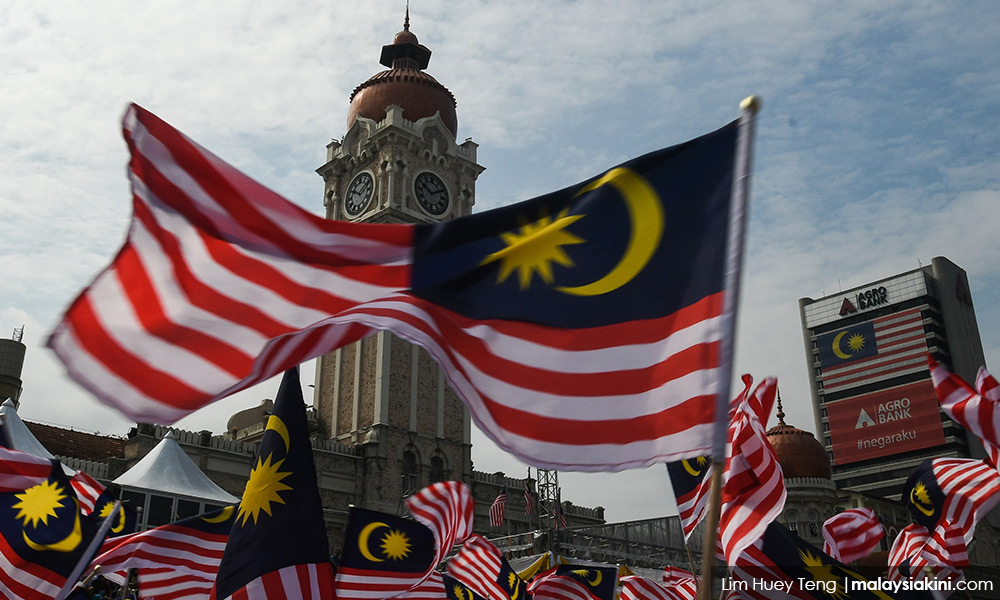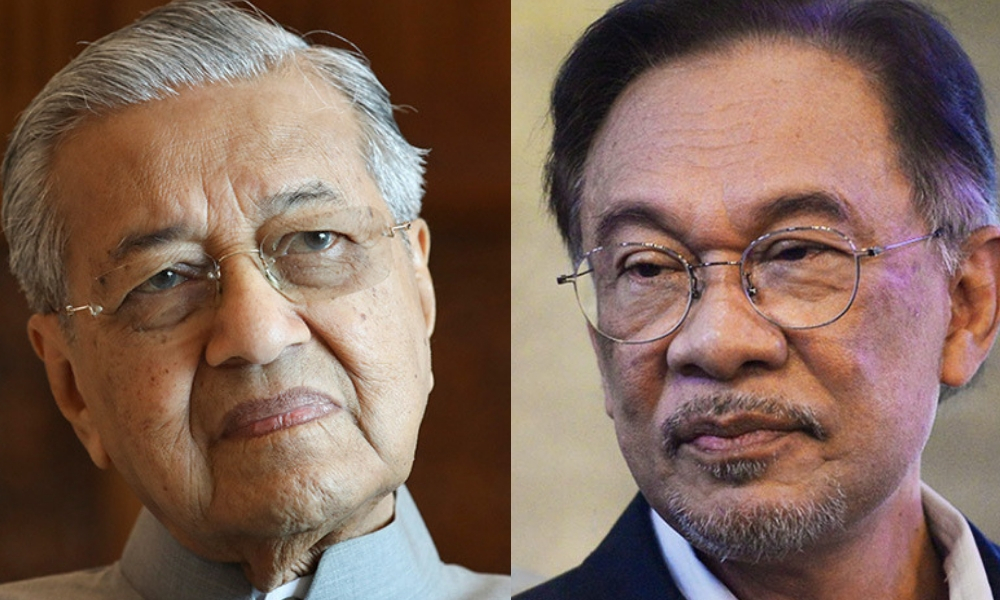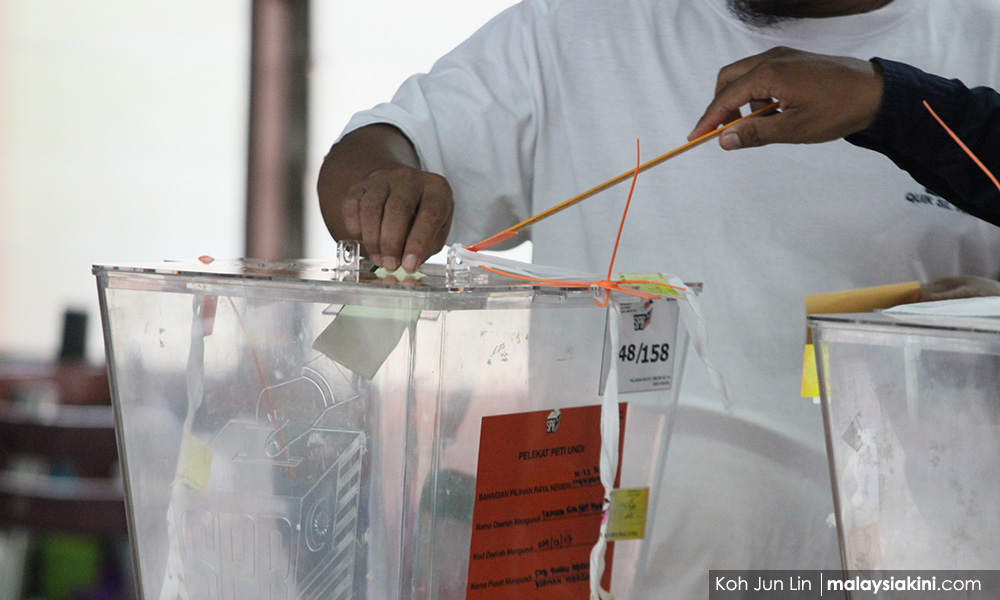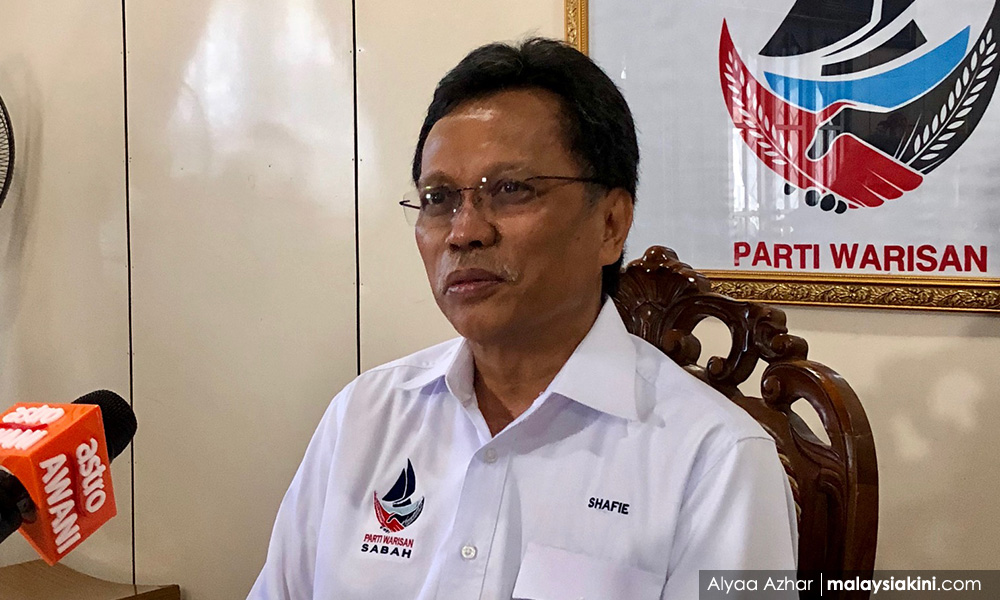The Great Reset - rebooting Malaysian politics

The political crisis caused by the Sheraton Move coup should be seen as part and parcel of a very painful and long democratisation process. The coup was, in fact, the form that the expected push back by conservative forces took, against the people’s democratic uprising that happened at the ballot box on May 9, 2018.
Malaysia had been a one-party state where people could not imagine change and even feared it — up until the 2008 election that saw BN losing its two-thirds majority for the first time and falling in the most industrialised states, such as Selangor and Penang.
The 14th general election witnessed Malaysians of all ethnic and religious backgrounds coming together in a huge turnout on election day to rise against the one-party state that attempted to win by setting a Wednesday polling day (to seemingly reduce turnout), changing election boundaries (allegedly to favour the ruling coalition), and attempting to use the Election Commission (EC) to ban the photo of former premier Mahathir Mohamad; not to mention possible interventions in the mass media et cetera.
Upon losing, the conservatives regrouped and attacked the Pakatan Harapan government on ethnic fronts — claiming to the Malays that the government had been hijacked by DAP and the non-Malays, while suggesting to the non-Malays that Mahathir controlled everything to the detriment of the non-Malays.
The “scorched earth” strategy worked. Trust and support for the Harapan government collapsed within a short span of time.
To bring together the grand coalition of Mahathir and PKR leader Anwar Ibrahim in 2017 was extremely difficult. But to hold it together after winning power in 2018 proved to be even harder. Trojan horses had penetrated its defences.

Bersatu president Muhyiddin Yassin on Mahathir’s side and then PKR deputy president Azmin Ali on Anwar’s side, pulled the rug from under these two leaders. The government fell as a result.
But the outcome of these shenanigans, the new government of Muhyiddin's Perikatan Nasional (PN), is the weakest in Malaysian history. It is not confident enough to prove that it has a majority in Parliament; and at the same time, Umno and PAS are waiting to pounce on Muhyiddin’s and Azmin’s separate factions.
On the opposition bench, the cleavage between Mahathir and Anwar makes reclaiming the ruling mandate very difficult. Talk of a looming general election is getting louder as well.
Here are five points that should help us understand the current political situation.
50-50 electorate
In the 2008 general election, Harapan allies received 47 percent of the popular vote. In 2013, support for them went up to 51 percent and in 2018, they gained 48 percent of votes in a three-cornered situation.

The widest gap we can expect in the next election is likely to be 55-45. Such is the nature of democracy in most countries. The divide runs down the middle, more or less.
There can, therefore, be no social peace when any government acts as if it is running a country with 90 percent of popular support.
Governing parties have to learn to create democratic space for the opposition so that when it becomes the opposition, it will enjoy that space as well.
Opposition parties should learn not to burn the house down using racial sentiments as it just renders the nation ungovernable. This comes back to bite you — and this is what PN has had to face.
Coalition realities
Coalition politics is likely to be the norm. It is highly unlikely that any party can win more than 70 seats in a Parliament with 222 seats.
Gone were the days when Umno alone, by winning more than 100 seats and being the dominant hegemon in its coalition, could control the country. Governments in the foreseeable future will likely be coalition governments of relatively similar strength.
Every party will have to learn how to accommodate its coalition partners to achieve the greatest common good.
Moving forward, institutions and governing styles should hopefully reflect these multi-party coalition realities so that every coalition partner can feel that their interests and constituencies are represented without having to have its leader as prime minister.
'East wind'
Of the peninsula’s 165 seats, Harapan won 80 seats in 2008, 80 seats again in 2013 and 98 seats in 2018. Based on this alone, it is wishful thinking on the part of some members in PN to claim that they can win a two-thirds majority in the next elections.
I acknowledge that Harapan may lose some seats in the peninsula, but I am confident that Harapan will hold the line at 80 to 85 seats.
These 80 to 85 seats may not bring Harapan back in power. But if there is a swing in Sabah and Sarawak for Warisan leader Shafie Apdal (below) and his allies, it is possible that they can win 30-35 seats out of the 57 seats in East Malaysian states.

With this “east wind”, taking over power from PN at the federal level is a possibility.
Last hurrah for one-race champions?
PN came into power with the idea that a one-race government is a superior one. I maintain that such an idea is only good for a coup but never good in an election.
I told Muhyiddin during my final chat with him before the Sheraton coup that Bersatu being on the same side with Umno and PAS will make it even harder for the three parties to carve up seats to contest in a general election.
The one-race champion, upon holding office, will have a hard time explaining the economic and other struggles faced by ordinary Malays for want of having an “Other” to blame. At the very least, they cannot put any blame on the DAP.
The anger against “dua darjat” (two classes) became more apparent when the privileged Malays linked to certain parties received lighter sentences for violation of the movement control order (MCO) compared to ordinary Malays. The one-race champion will also face anger and scrutiny on the presence of leaders facing criminal charges in its coalition from middle-ground Malay voters who wish to see the country run by a clean government.
Pushing for a one-race ticket will also alienate non-Malay voters and Sabah/Sarawak voters.
Democratic uprising
The 2018 election was a democratic uprising pulling together all forces who were against former prime minister Najib Abdul Razak and BN's rule.
We must explain to Malaysians that if all forces attempting to establish clean government and democracy do not come together, they are paving the way for PN to perpetuate its undemocratic rule.
If snap polls are called, all forces opposing Muhyiddin and Najib should, therefore, come together to fight them.
Civil society and all Malaysians who want to preserve and strengthen democracy should acknowledge that we are faced with very strong conservative and regressive forces; and the only way to push back is to work together in a grand coalition to win at least 130 seats on election night to form a stable majority.
Only by understanding these realities and acting strategically, can we start afresh to mobilise our collective efforts in reclaiming Malaysia’s democracy. Let it be clear that we can only achieve this feat if we stand together.
Editor's note: This article was first published here.
LIEW CHIN TONG is a senator and ex-deputy defence minister. The above is the first part of the abridged introduction of his soon-to-be-released book, The Great Reset. - Mkini
✍ Credit given to the original owner of this post : ☕ Malaysians Must Know the TRUTH
🌐 Hit This Link To Find Out More On Their Articles...🏄🏻♀️ Enjoy Surfing!



















Post a Comment